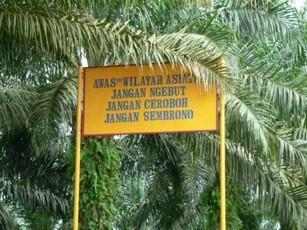Down to Earth No.79, November 2008
Indonesian organisations have circulated the following information about the impact of the global credit crunch and falling palm oil prices on peasant farmers in the province Jambi, Sumatra. Translation from the Indonesian by DTE.
Since palm oil became 'the golden crop' around the year 2000, the European market for this commodity has grown year on year, not only to satisfy demand from the food and cosmetics industries, but also as an alternative energy source to fossil fuels.


